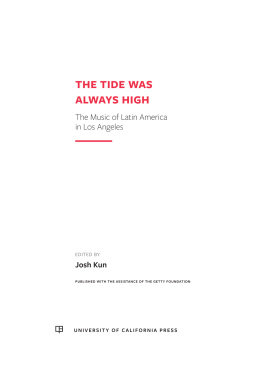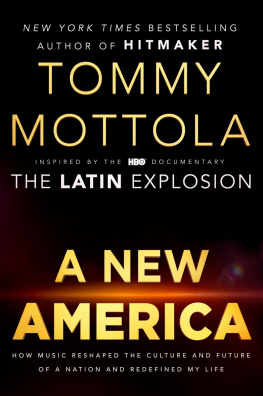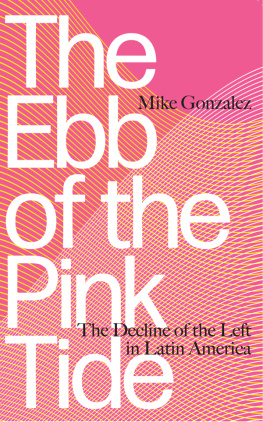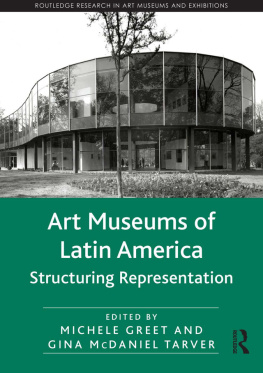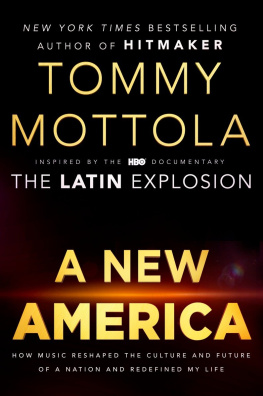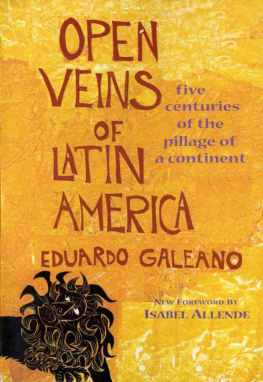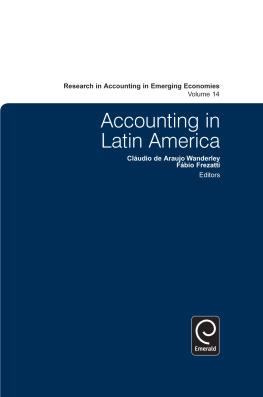Alexandra T. Vazquez
Carol A. Hess
Carolina A. Miranda
David F. Garca
Xchitl C. Chvez
PREFACE: THE MUSIC OF LA/LA
IN 2011, I CURATED an exhibition at the GRAMMY Museum for the first installment of the Getty Foundation initiative Pacific Standard Time: Art in L.A. 19451980 . Titled Trouble in Paradise: Music and Los Angeles 1945 1975, the exhibition explored multiple postWorld War II histories of civic unrest and social change through musical movements that reverberated across the city. The show mixed artifacts, ephemera, and photography with listening stations, film clips, and an interactive jukeboxand its accompanying Pacific Standard Time streaming playlist on Pandora.
For the second iteration of the Getty initiative, Pacific Standard Time: LA/LA, dedicated to artistic explorations of the relationships between Los Angeles and Latin America, we have tried something different. Instead of a fixed exhibition, I proposed to curate a series of live musical events, or musical interventionsconcerts, installations, gallery performancesthat would take place at multiple museums across the city, each in conversation with the themes and subject of various exhibitions. These musical experiences would all be historically engaged as contemporary performative interpretations of LA/LA musical history. They would all be committed to a focus on musical historiography and live reimaginationlive archival remixes, live archival reperformances that revisit the LA musical legacies of Yma Sumac, Juan Garca Esquivel, Joo Donato, and many more. For details on these performances, as well as additional visual ephemera and historical photographs we were not able to include on these pages, please visit our project website: tidewasalwayshigh.com
In order to plan these performances, I assembled a research team of journalists, scholars, and musicians to begin thinking through the long history of Latin Americas relationship to the music and sounds of Los Angeles. We began with a simple, but loaded, question: What does the relationship of LA/LA sound like? How to even begin unraveling the connections between Los Angeles and Latin America through music? This volume is our attempt to answer those questions and presents the result of much of our collective research. A blend of previously published articles, poems, and interviews with newly commissioned studies, histories, and conversations, The Tide Was Always High is meant to serve both as a kind of background catalog, or research dossier, for the live musical events happening throughout the fall of 2017 and as a stand-alone volume that we hope adds to the already rich legacy of Los Angeles scholarship and literature.
We realized very quickly that our ambitions would overreach what we could do in a single volume; an exhaustive study of the role of Latin America in LA music is a lifes work, not a single book. So many genres and scenes, musicians and movements, do not appear in these pagesLatina/o techno, house, hip-hop, the thriving Regional Mexican industry, rock en espaol luminary turned film composer Gustavo Santaolalla, for startersespecially contemporary ones currently unfolding since the break of the twenty-first century like the latest waves of backyard punk and ska house parties, Latin alternative, and new school cumbia. Our focus on the impact of Latin America on Los Angeles rather than Los Angeles on Latin America meant not delving into histories like the influence of Mexican-American pachucos on Mexican music and film star Tin Tan. Our focus on popular music styles left little room for exploring parallel Latin American histories in the Los Angeles classical and art music scenes. But then it keeps listening for other directions and other histories that, I hope, open up a new way of thinking about the broader Latin American musical influence on Los Angeles. Ultimately, this volume adds to work that helps us to continually engage with counterhistories of Los Angeles and to passionately embrace genealogies of musical production that alter what we thought we already knew about a city so deeply made of sound.
NOTES
2014; Angela Boatright, Los Punks: We Are All We Have (Vans Off The Wall films, 2016); Sam Quinones, Sing Now, Die Later: The Ballad of Chalino Sanchez, LA Weekly, July 29, 1998; Romeo Guzmn, Mexicos Most Celebrated Pachuco: Tin Tan, KCET.org, February 23, 2017; Helena Simonett, Banda: Mexican Musical Life Across Borders (Middleton: Wesleyan University Press, 2001); George Lipsitz, Footsteps in the Dark: The Hidden Histories of Popular Music (Minneapolis: University of Minnesota Press, 2007), chap. 3; Sarah Bennett, A New Kind of Latin Alternative Music Is Breaking Down Old Barriers in L.A. and Beyond, LA Weekly, March 22, 2017; and Tricia Tunstall, Changing Lives: Gustavo Dudamel, El Sistema, and the Transformative Power of Music (New York: W.W. Norton, 2013).

